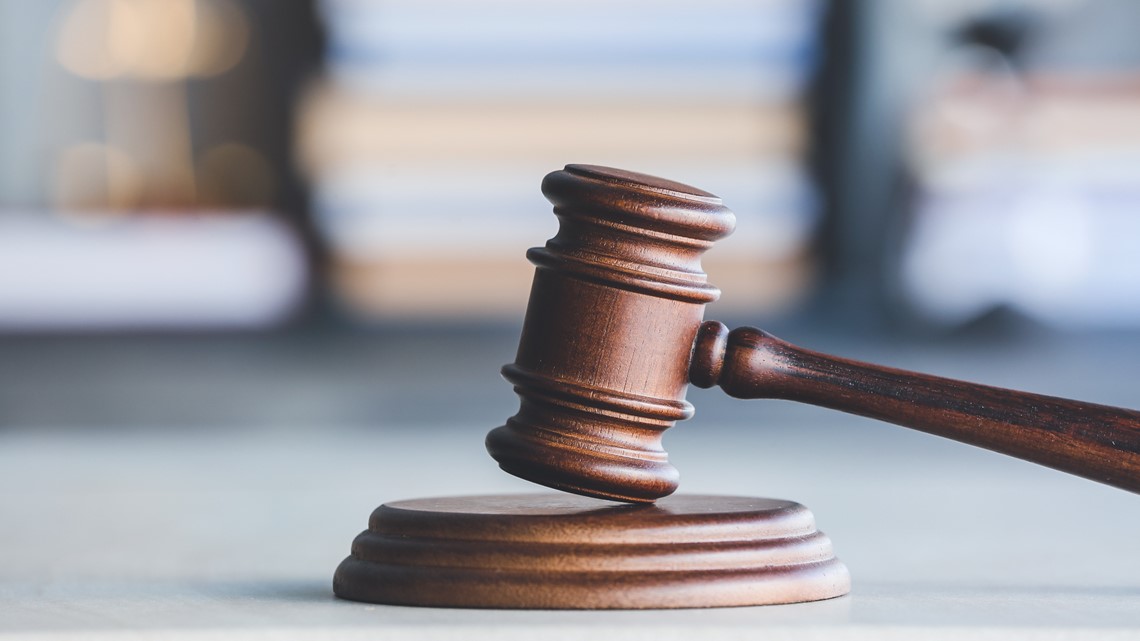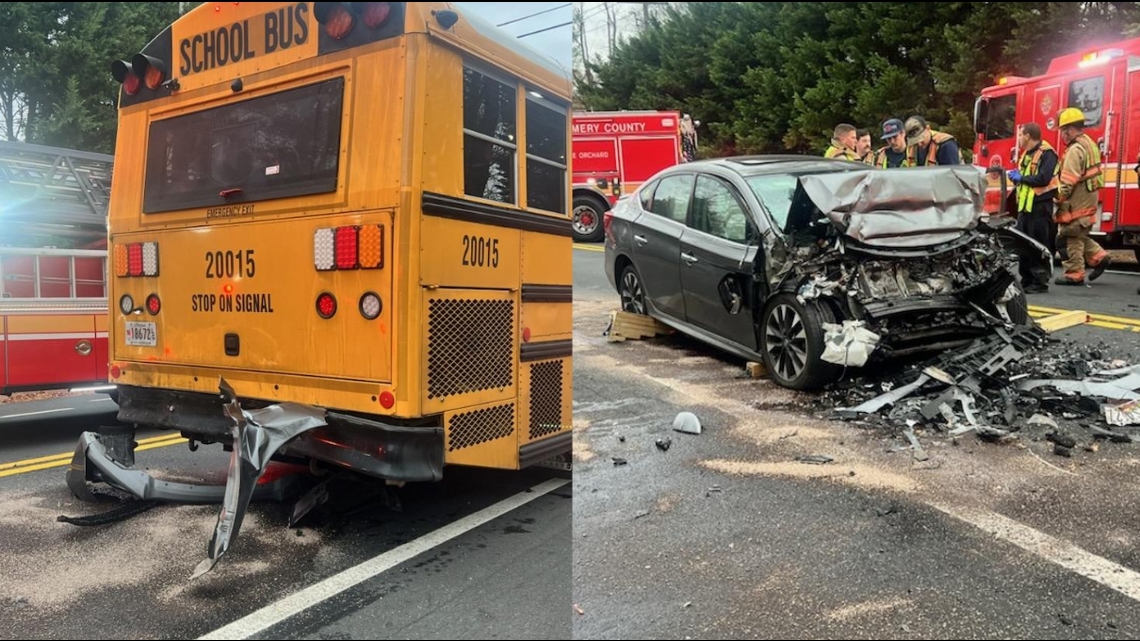The former president is accused of defrauding the United States and conspiring to obstruct the joint session of Congress on Jan. 6, 2021.
WASHINGTON — Former President Donald Trump made his initial appearance Thursday in a federal courtroom only a block away from where thousands of his followers assaulted the U.S. Capitol on Jan. 6, 2021. He pleaded not guilty to all four counts, and was released with warnings from the judge.
Trump appeared before federal Magistrate Judge Moxila Upadhyaya alongside his attorney, John Lauro, for arraignment on four counts of conspiracy and obstruction of an official proceeding. The negotiated conditions of release include that Trump must not communicate about the facts of the case with anyone known to be a witness except through counsel. Judge Upadhyaya also warned Trump that he must not retaliate against anyone providing information to the prosecution or otherwise obstruct justice.
The next hearing for former President Trump will be on Aug. 28 at 10 a.m. It will be before District Judge Tanya S. Chutkan, who was randomly assigned to oversee the case. Judge Upadhyaya says Trump will be able to waive his appearance for that hearing if he chooses. The DOJ has seven days to file a requested trial date as well as how long they believe their case-in-chief should take, and then Trump's attorneys have seven days to respond.
And with that, former President Donald Trump's initial appearance has concluded. Next hearing will be Aug. 28 before District Judge Tanya S. Chutkan.
Expect a filing within 7 days from the govt. laying out how long they expect a trial would take.
Trump traveled from his golf club in Bedminster, New Jersey, and arrived at the D.C. District Courthouse through a parking garage without giving a statement. Before he boarded his jet to return to Bedminster, he briefly addressed reporters.
"This is a very sad day for America, and it was also very sad driving through Washington, D.C. and seeing the filth and decay," Trump said from the tarmac. "This is not the place that I left."
Trump said little during the hearing except to answer Upadhyaya’s questions about whether he had discussed the charges with his attorney and understood the conditions of his release. Trump appeared via summons and was not placed under arrest on Thursday. Prosecutors did not ask Upadhyaya to impose pretrial detention.
After the hearing concluded, Trump exited the building the way he’d come in and traveled back to the airport, from which he was expected to return to Bedminster.
Trump’s court appearance came just two days after an indictment was filed by Special Counsel Jack Smith’s office on four counts:
- Conspiracy to Defraud the United States
- Conspiracy to Obstruct an Official Proceeding
- Obstruction of and Attempt to Obstruct an Official Proceeding
- Conspiracy Against Rights
“Each of these conspiracies – which built on the widespread mistrust the Defendant was creating through pervasive and destabilizing lies about election fraud – targeted a bedrock function of the United States federal government: the nation’s process of collecting, counting, and certifying the results of the presidential election,” prosecutors wrote.
Trump and six co-defendants not named in the indictment are accused of plotting to unlawfully remain in power following his loss to President Joe Biden in the 2020 election. In the wake of his loss in Arizona – a state he needed to clinch victory – prosecutors say Trump turned to former New York mayor and attorney Rudy Giuliani to spearhead his efforts to challenge election results in multiple states. As more than 60 legal challenges failed around the country, prosecutors say Trump and his co-conspirators developed a plan to submit false slates of electors from seven states, including Arizona, Georgia, Michigan and Wisconsin.
At the same time, Trump, Giuliani and others are accused of mounting a pressure campaign on officials to take steps that would bolster their efforts. In Arizona, Trump, Giuliani and another attorney, John Eastman, asked Republican Speaker of the House Rusty Bowers to convene a special session of the state legislature based on their unfounded claims of election fraud. Bowers refused, later telling the January 6th Committee he felt they were trying to use him as a “pawn.”
Rep. Schiff is asking Rusty Bowers about the statement Trump put out earlier claiming Bowers told him the election was "rigged" and he won Arizona.
Bowers says "anyone, anywhere, at any time who says I said the election was rigged isn't telling the truth." pic.twitter.com/vvSy1pWXYX
In Georgia, Giuliani falsely accused two election workers, Ruby Freeman and her daughter Shaye Moss, of voter fraud during a video call with members of the state senate – forcing them to flee from their homes under threat of violence. Trump also mentioned Moss and Freeman’s names 18 times during a call with Georgia Secretary of State Brad Raffensperger. Trump demanded Raffensperger “find” 11,780 votes for him, enough to change the result of the election, and threatened him with criminal prosecution if he was unable to provide proof for Trump’s claims of election fraud.
In his own testimony before the January 6th Committee, Raffensperger said he and his office attempted to confirm every one of Trump’s claims – including that thousands of dead people had voted and that a “suitcase of ballots” had been pulled out from under a table at the State Farm Arena – and were unable to substantiate any of them.
“Every single allegation we checked,” he said. “We ran down the rabbit trail to make sure our numbers were accurate.”
The indictment stopped short of accusing Trump of inciting the riot – saying instead individuals had come to D.C. and the Capitol at his “direction.” Once the riot broke out, prosecutors said, Trump “exploited” the violence to continue his pressure campaign against Vice President Mike Pence and members of Congress in an effort to get them to accept fraudulent slates of electors or delay the certification. Ultimately, the election results were certified by the joint session of Congress at approximately 3:44 a.m. on Jan. 7.
In the 30 months since the Capitol riot, the Justice Department has charged more than 1,000 defendants, including more than 300 cases including the same obstruction of an official proceeding charge Trump now faces. More than 600 people have now pleaded guilty or been convicted at trial, including dozens of members of extremist organizations like the Oath Keepers and Proud Boys accused of conspiring to disrupt the certification of the 2020 election on Jan. 6.
.png)









 English (US) ·
English (US) ·